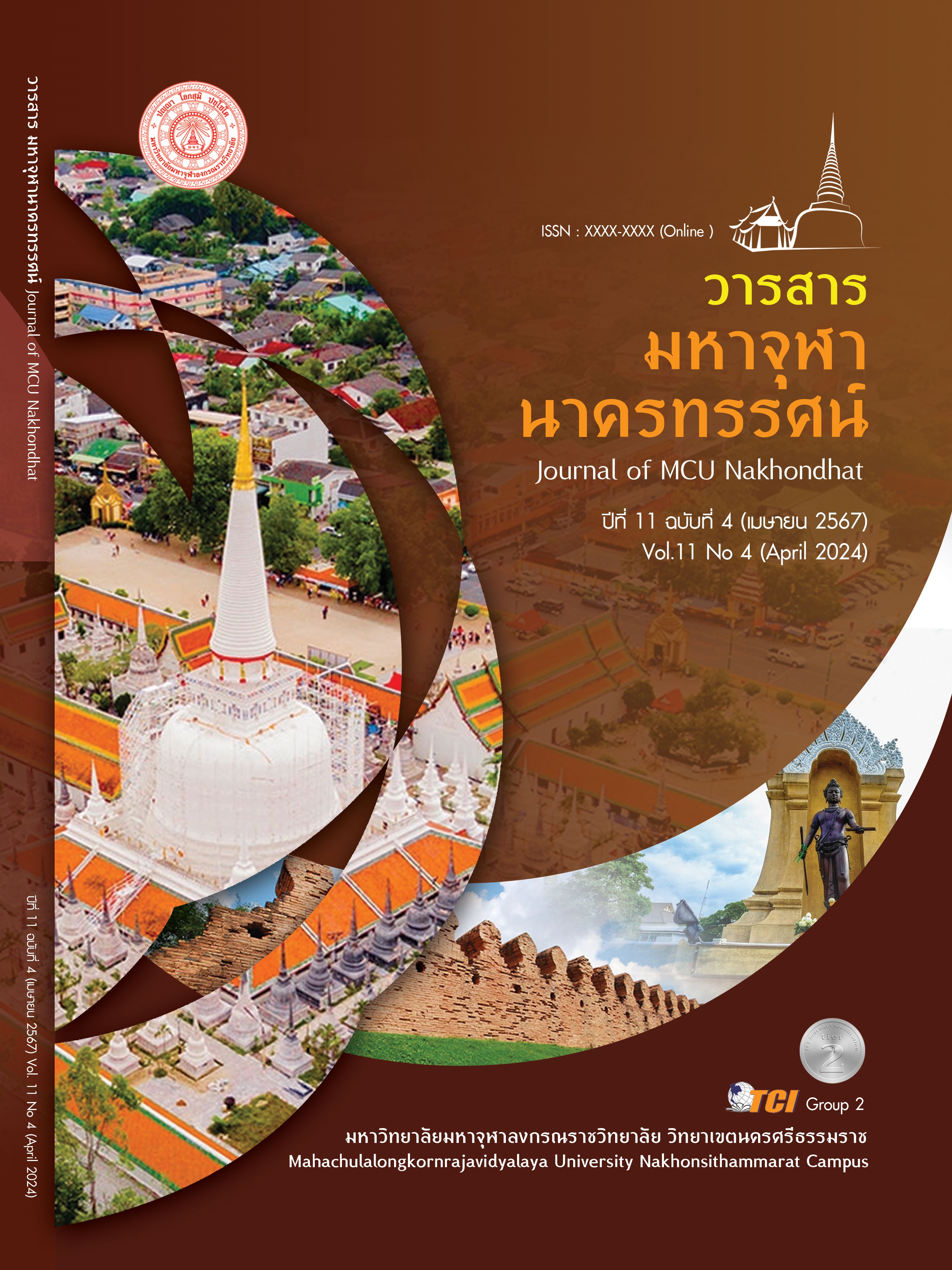BUDDHISM AND STRENGTHENING FACTORS FOR SELF - ESTEEM OF THE ELDERLY
Main Article Content
Abstract
This academic article has the objective to strengthen factors for the self - esteem of the elderly. By analyzing the principles of Buddhism together with the theory of appreciating values according to universal principles. Using the principles of Buddhism, namely the Ariyavaddhi principles. Because it is a Buddhist principle that affects the lives of the elderly in all aspects, including physical, mental, social, and intellectual aspects. It is also a factor supporting the self - esteem of the elderly. Starting with basic factors such as eating. Living in a good environment, etc., will allow the elderly to lead happy lives. And have a good quality of life that comes from applying Buddhist philosophy as a guideline for self-reliance. and help promote the elderly to see their own self - worth The results from the analysis of Buddhist principles and the strengthening of supporting factors for the self-esteem of the elderly found that there are guidelines for strengthening supporting factors divided into 2 areas: internal factors and external factors, with internal factors being self - development according to Buddhist principles as a process Starting with the development of moral behavior, concentration, and wisdom, which are important factors that make the elderly feel self - worth in terms of goodness, that is, achieving morality. And the power aspect is the influence on one's own life and the lives of others. As for the external factors Starting with strengthening relationships with people within the family and people in society, making the elderly feel valued and feel that they are important and not a burden to society. and also be able to be a part of society that will create benefits for society As a result, the elderly value themselves and are confident in living happily.
Article Details

This work is licensed under a Creative Commons Attribution-NonCommercial-NoDerivatives 4.0 International License.
References
กรมกิจการผู้สูงอายุ. (2564). สังคมผู้สูงอายุในปัจจุบันและเศรษฐกิจในประเทศไทย. เรียกใช้เมื่อ 15 มีนาคม 2567 จาก https://www.dop.go.th/th/know/15/926
พระพรหมคุณาภรณ์ (ป.อ. ปยุตฺโต). (2556). พจนานุกรมพุทธศาสตร์ ฉบับประมวลศัพท์. (พิมพ์ครั้งที่ 19). กรุงเทพมหานคร: โรงพิมพ์พระพุทธศาสนาของธรรมสภา.
มหาวิทยาลัยมหาจุฬาลงกรณราชวิทยาลัย. (2539). พระไตรปิฎกฉบับภาษาไทย ฉบับมหาจุฬาลงกรณราชวิทยาลัย. กรุงเทพมหานคร: โรงพิมพ์มหาจุฬาลงกรณราชวิทยาลัย.
ฤทัย พานิช และพรสวรรค์ มณีทอง. (2564). การเสริมสร้างสุนทรียภาพเพื่อสร้างคุณค่าในตนของผู้สูงอายุ. วารสารมนุษยศาสตร์สังคมศาสตร์ปริทัศน์, 9(3), 28-38.
สมเด็จพระพุทธโฆษาจารย์ (ป.อ. ปยุตฺโต). (2562). ถ้าสูงอายุเป็นก็น่าเป็นผู้สูงอายุ. กรุงเทพมหานคร: สำนักพิมพ์ผลิธัมม์.
สำนักงานสถิติแห่งชาติ กระทรวงดิจิทัลเพื่อเศรษฐกิจและสังคม. (2564). สถานการณ์ผู้สูงอายุไทยในมิติความต่างเชิงพื้นที่ พ.ศ. 2564. กรุงเทพมหานคร: กองสถิิติิพยากรณ์์ สำนัักงานสถิิติิแห่่งชาติิ.
Coopersmith, S. (1984). SEI: Self-Esteem Inventories. 2nd. Californai: Consulting Psychologist Press.


